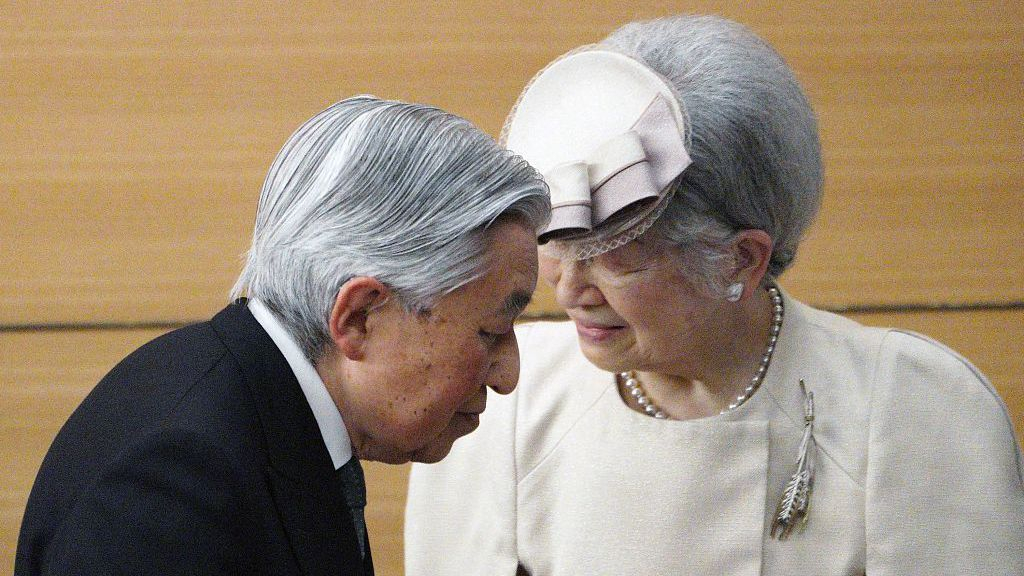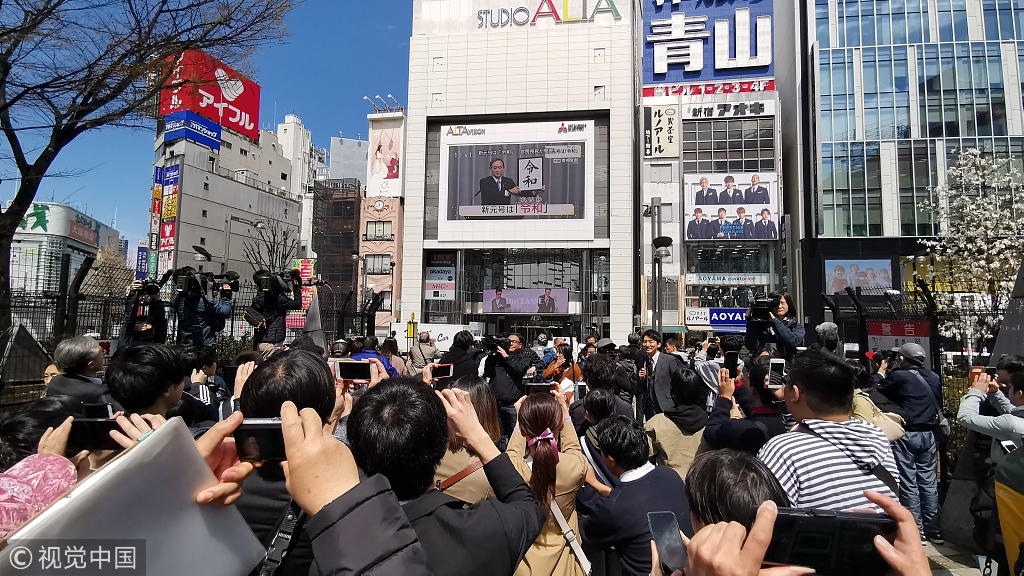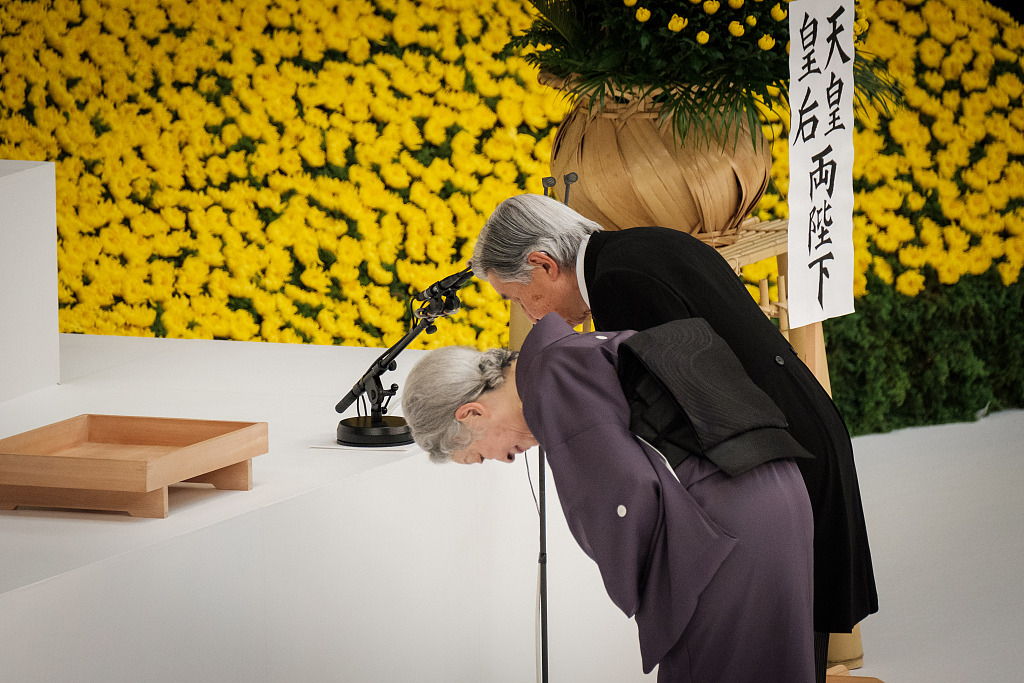
Opinion
07:26, 30-Apr-2019
Japanese Emperor Akihito leaves a legacy of reconciliation
Chris Deacon

Editor's note: Chris Deacon is a postgraduate researcher in politics and international relations at the University of London and previously worked as an international commercial lawyer. The article reflects the author's opinion, and not necessarily the views of CGTN.
Today, Emperor Akihito will officially give up the chrysanthemum throne in the first imperial abdication to take place in Japan for over two centuries.
Taking his place will be Akihito's son, Naruhito. And with this imperial transition also comes a new era (or "gengo" in Japanese) called "Reiwa" – officially translated to English by the Japanese government as "beautiful harmony." The Reiwa era will begin as the current Heisei era (meaning roughly "achieving peace") comes to an end.
There has already been debate regarding the meaning of the new era name. The Japanese government has said that it is derived from a poem featured in the 8th-century Manyoshu, which references the beauty of plum blossoms emerging after a cold winter. Its contemporary meaning, on the other hand, can be interpreted rather differently.
The second character "wa" is relatively uncontroversial in meaning "peace" or "harmony." It has historically also referred to Japan itself, for example in the word "washoku," meaning Japanese food.
"Rei," however, is more controversial. While the character, centuries ago, commonly referred to auspiciousness, the contemporary usage is almost always in the context of commands or orders. Thus, "Reiwa" produces a meaning along the lines of "ordering harmony," or "commanding peace."

People stand on the streets to watch the live broadcasting of the government's announcement of the new era name, Tokyo, April 1, 2019. /VCG Photo
People stand on the streets to watch the live broadcasting of the government's announcement of the new era name, Tokyo, April 1, 2019. /VCG Photo
It is not difficult to see how some might find such a meaning to be unfortunate, given sensitivities in the region to Japan's history in the first half of the 20th century. This is particularly the case in light of Prime Minister Shinzo Abe's known tendency for historical revisionism.
What this alternative meaning jars most with, however, is the role that the imperial family – and particularly Akihito himself – have taken on in recent decades, seeking to atone for Japan's past.
While the Japanese emperor – like most constitutional monarchs – is prohibited from direct involvement in politics and, therefore, must refrain from overt statements which might be deemed inappropriate, in small gestures and words Akihito has tried to express a clearly heartfelt determination to further the cause of reconciliation in East Asia.
As Japanese political leaders, particularly Abe himself, try to end what they see as a masochistic view of Japan's history, Akihito has sought to keep memory of this history alive, and to continue Japan's repentance for it.
At last year's Memorial Service for the War Dead – conducted annually in Japan on August 15, when the Second World War ended – and Emperor Akihito's last, both he and Abe spoke. While Abe could be accused of somewhat tiptoeing around the issue, Akihito – as is his way – spoke of his "deep remorse" for Japan's wartime aggression.

Japan observes the 73rd anniversary of the end of World War II with the imperial couple attending a memorial ceremony at Tokyo Budokan Martial Arts Hall, August 15, 2018. /VCG Photo
Japan observes the 73rd anniversary of the end of World War II with the imperial couple attending a memorial ceremony at Tokyo Budokan Martial Arts Hall, August 15, 2018. /VCG Photo
In 2001, ahead of the FIFA World Cup to be jointly hosted in Japan and the Republic of Korea, Akihito even spoke to reporters about his family's special "kinship" with Korea. While it is recorded in the Chronicles of Japan that, over a millennium ago, the bloodlines of the Japanese Imperial Family and that of the rulers of an ancient Korean kingdom did indeed mix, this was the first time that a member of the family had publicly acknowledged it.
Some may see this as a small gesture, but it surprised many at the time. Conservative right-wingers in Japan were as equally upset as many South Koreans were delighted by the emperor's words.
It was also part of a pattern of behavior that Akihito became famous for – of gentle warmth and hope to rebuild friendship across peoples who have so much in common, despite a difficult history.
Such small actions were, also, often all that the emperor could do to show his inner sentiment, given the constitutional limits placed on him.
This was an entirely new role that Akihito carved out for himself, in a conservative political environment which was at times openly hostile to his approach. And given that conservative environment, a counterbalance focused on atonement for the past was surely all the more necessary.
For taking on this role, therefore, Akihito deserves much praise. This desire for reconciliation and deep atonement on the part of his country will be the lasting legacy of the Heisei Emperor, as he will become known after his reign ends.
It can only be hoped that future generations in Japan will see the example he has set and, while not allowing the past to form a barrier to future cooperation and friendship, not forgetting it either.
(If you want to contribute and have specific expertise, please contact us at opinions@cgtn.com.)

SITEMAP
Copyright © 2018 CGTN. Beijing ICP prepared NO.16065310-3
Copyright © 2018 CGTN. Beijing ICP prepared NO.16065310-3